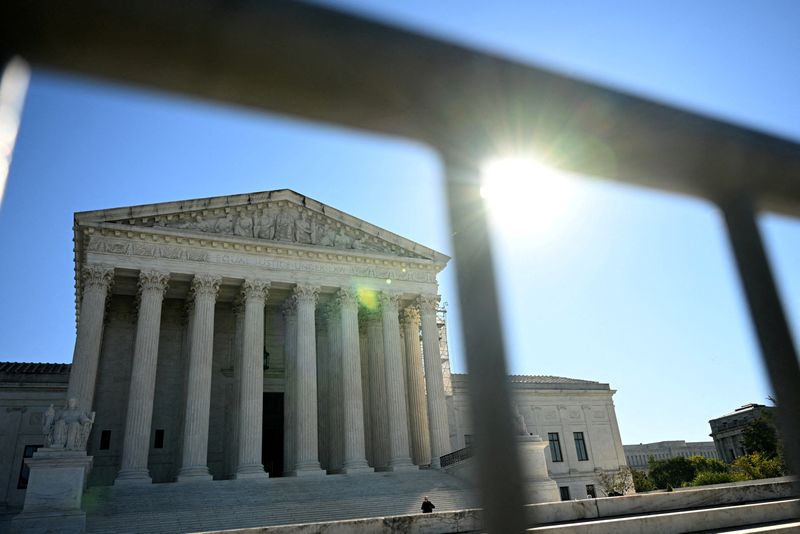During its last term, the U.S. Supreme Court ruled in favor of Donald Trump in three significant cases, but his legal struggles are far from over. Currently, there are seven important cases involving Trump as a defendant, including two federal criminal charges, two state criminal prosecutions, and three civil lawsuits. These cases can potentially be advanced to the Supreme Court, although it is unlikely that the justices will hear them during the current term that commenced on Monday. Additionally, litigation concerning the outcome of the upcoming U.S. presidential election is looming, where Trump, as the Republican candidate, will face off against Democratic Vice President Kamala Harris. The outcome of at least two of Trump’s ongoing cases may depend on the election results, with implications for his legal strategy based on whether he wins or loses.
If Trump regains the presidency, he may leverage his position to pardon himself or influence the Justice Department to drop the two federal criminal cases led by Special Counsel Jack Smith. These cases involve allegations related to Trump’s attempts to overturn the 2020 election results and improper retention of classified documents after his presidency concluded. Conversely, state criminal charges, such as those stemming from Trump’s conviction in New York for payments made to adult film star Stormy Daniels and related charges concerning the 2020 election in Georgia, cannot be pardoned by a sitting president. Each of these situations reflects the broader network of legal challenges Trump faces while he concurrently campaigns for the presidency.
Significantly, the civil lawsuits against Trump include judgments for civil fraud related to business practices in New York, and separate civil litigations by E. Jean Carroll, who accused Trump of sexual assault and sought damages through two separate court cases. Trump has pleaded not guilty to the criminal charges and denied wrongdoing in all civil lawsuits. The U.S. Supreme Court had previously established in July a mixed standard of “absolute immunity” and “presumptive immunity” for former presidents concerning actions taken within their constitutional powers, directly affecting the legal landscape of the criminal prosecution Trump faces.
Following the Supreme Court’s ruling, the case concerning Trump’s alleged attempts to undermine the 2020 election was returned to U.S. District Judge Tanya Chutkan, who is tasked with reviewing Smith’s allegations in accordance with the new immunity guidelines. Should Trump not reclaim the presidency and end the ongoing cases, Chutkan’s ruling on immunity would likely be scrutinized first by the U.S. Court of Appeals before potentially ascending to the Supreme Court for final adjudication. Legal experts suggest that should Trump lose the election, it is highly probable that the Supreme Court might reassess its position on presidential immunity.
The legal labyrinth continues with the ongoing prosecution in Georgia, where Trump and 14 co-defendants plead not guilty to election-related charges. This particular case, on hold while an appellate court evaluates alleged misconduct by the lead prosecutor, could similarly invoke the question of immunity, forming yet another link in the chain of legal challenges Trump might face. Furthermore, if Trump were to win in November, proceedings in the Georgia case may be deferred until he is out of office, creating a complex interplay of legal processes involving both state and federal jurisdictions.
In terms of civil legal entanglements, the appellate process is underway regarding substantial judgments against Trump stemming from business practices and the lawsuits initiated by E. Jean Carroll. The judgments amount to significant financial liabilities—one totaling $5 million and another estimated at $83.3 million. Trump’s appeal against these judgments is ongoing in the 2nd U.S. Circuit Court of Appeals, while an earlier court ruling concerning civil fraud has also spurred an appeal indicating vital issues raised that could require revisiting in light of new legal interpretations. Ultimately, the upcoming presidential election and its outcome remain pivotal, with the potential to reshape Trump’s legal strategy and future dealings in court.

